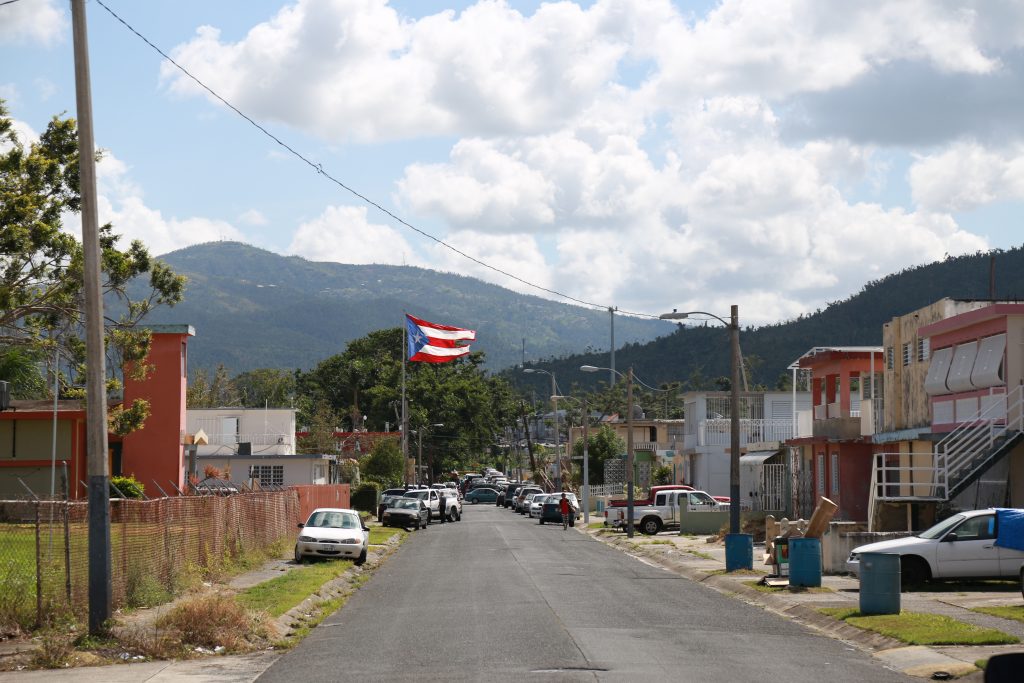This International Nurses Day, we are sharing the story of Nancy Rudner, an Orlando-based American nurse with over 20 years nursing experience, who deployed to Puerto Rico after two powerful hurricanes devastated the tiny island nation last fall.
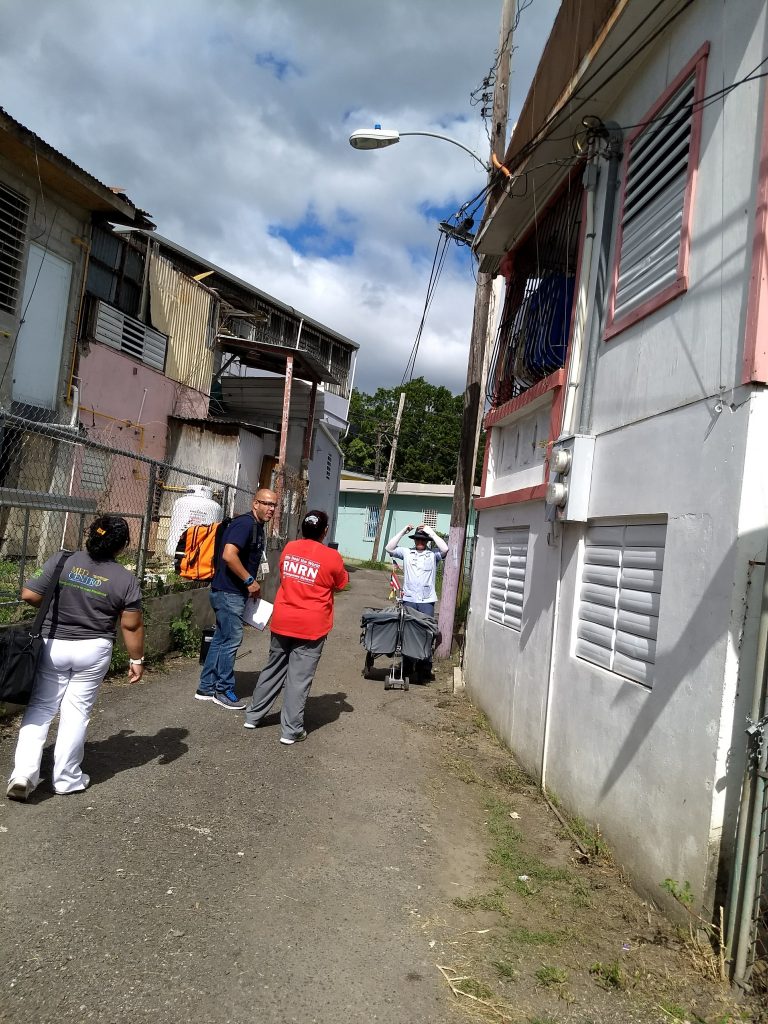
Hurricane Irma and Hurricane Maria hit Puerto Rico within a two-week span in September 2017. Both storms were catastrophic to the island, home to 3.4 million U.S. citizens—leveling homes, destroying health facilities and damaging critical infrastructure. International Medical Corps sent bilingual volunteer teams to assist in the recovery process, and nurse Nancy Rudner was among those deployed. She says the work of her and her colleagues was “pure nursing,” in that “people needed help adjusting to the new normal.” She notes how disrupted life was for Puerto Ricans: “From people who had nothing, Maria took everything.” Nancy and her colleagues conducted many home visits, as depicted in this photo, in order to “go to where the greatest needs were” and “meet people where they were.”
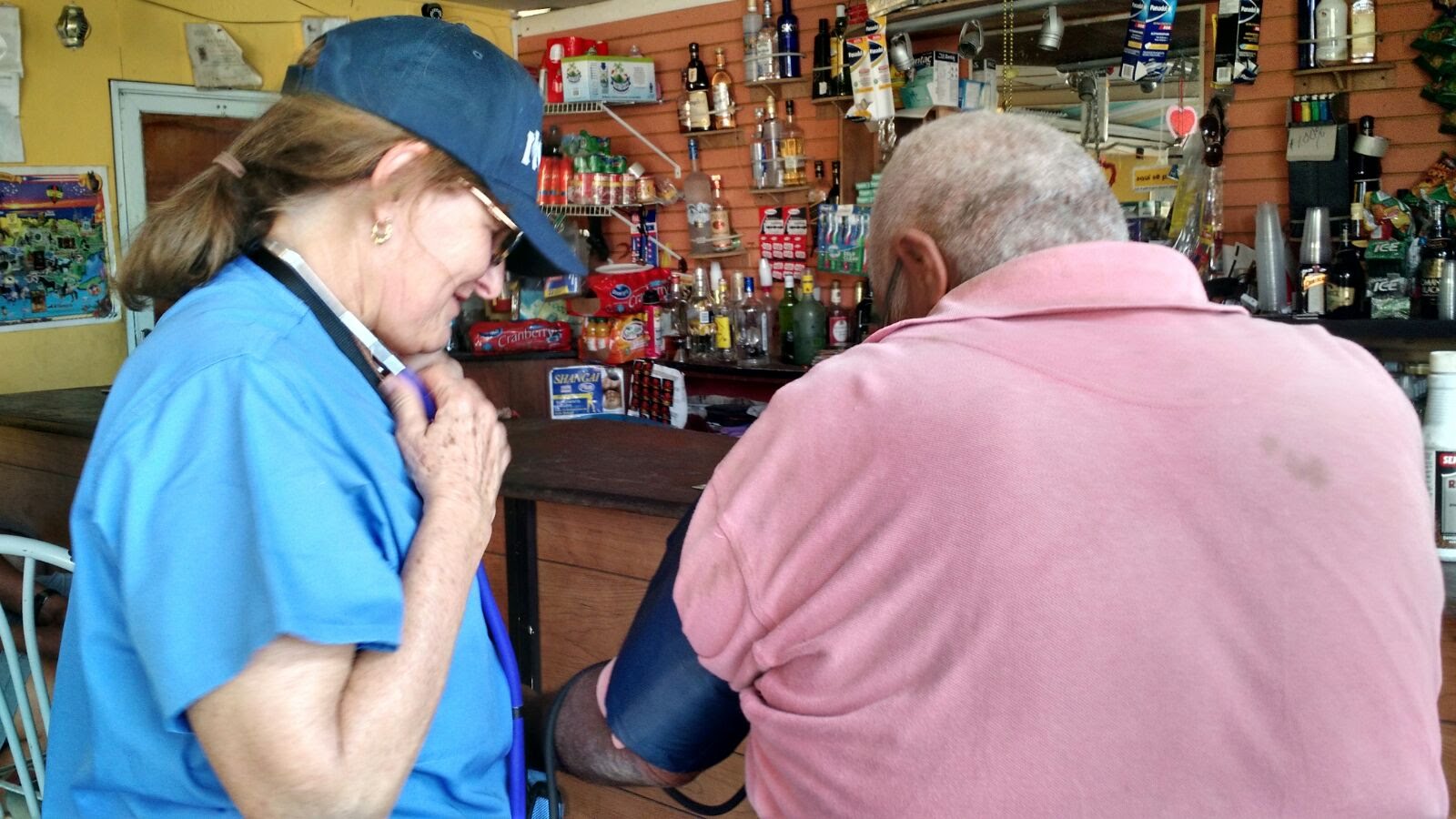
Here Nancy tends to a patient, helping explain how he should take his new medicine. The majority of Nancy’s patients were older and have adult children living outside Puerto Rico on mainland U.S. For these patients, “all of life was affected.”
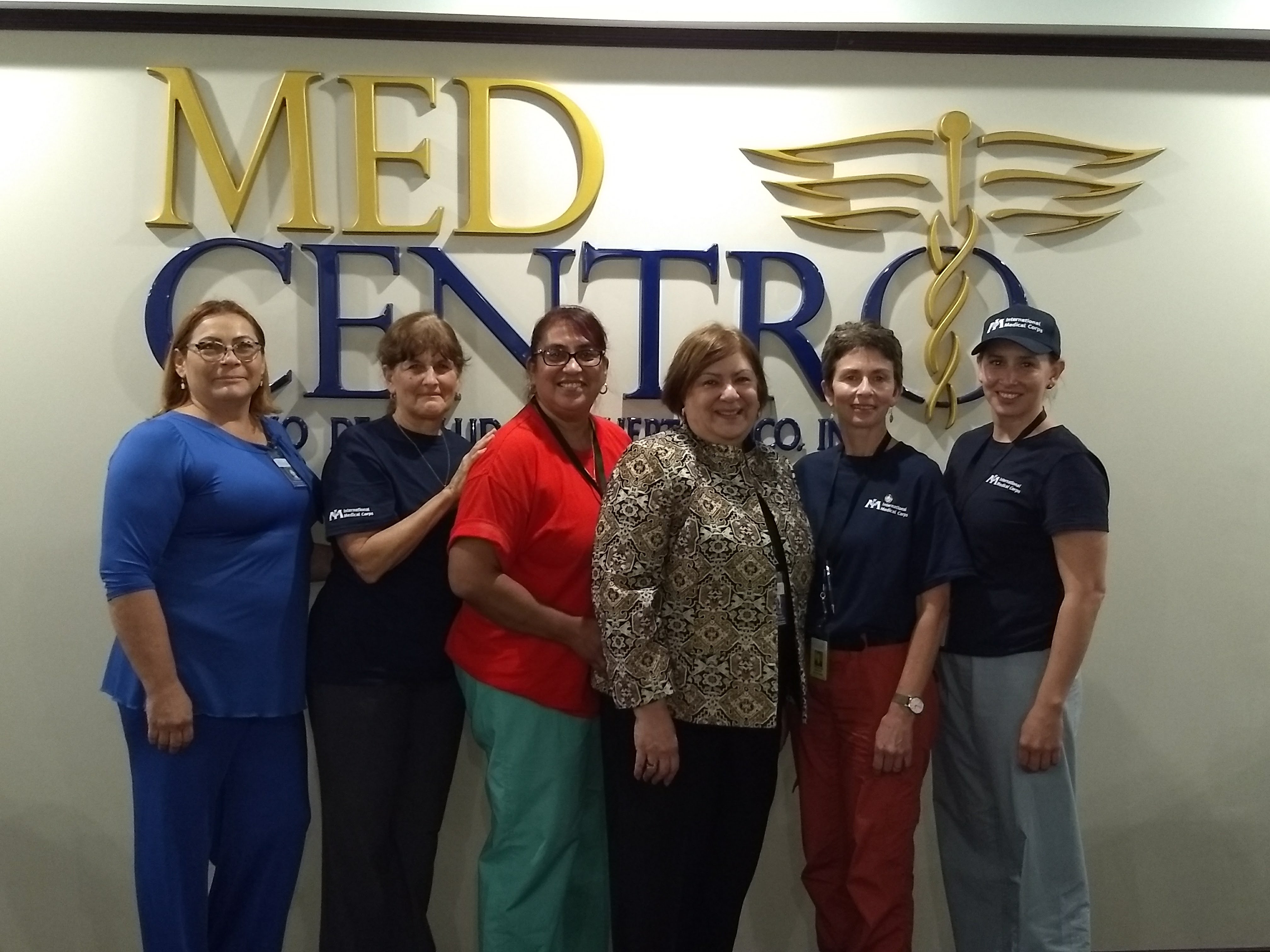
Nancy (second to left) with Med Centro, a local Puerto Rican health partner. Nancy says International Medical Corps’ model of partnering with local health care providers is “the right way to do humanitarian work.” Local partnerships help connect disaster-affected populations with ongoing care and strengthen existing health infrastructure.
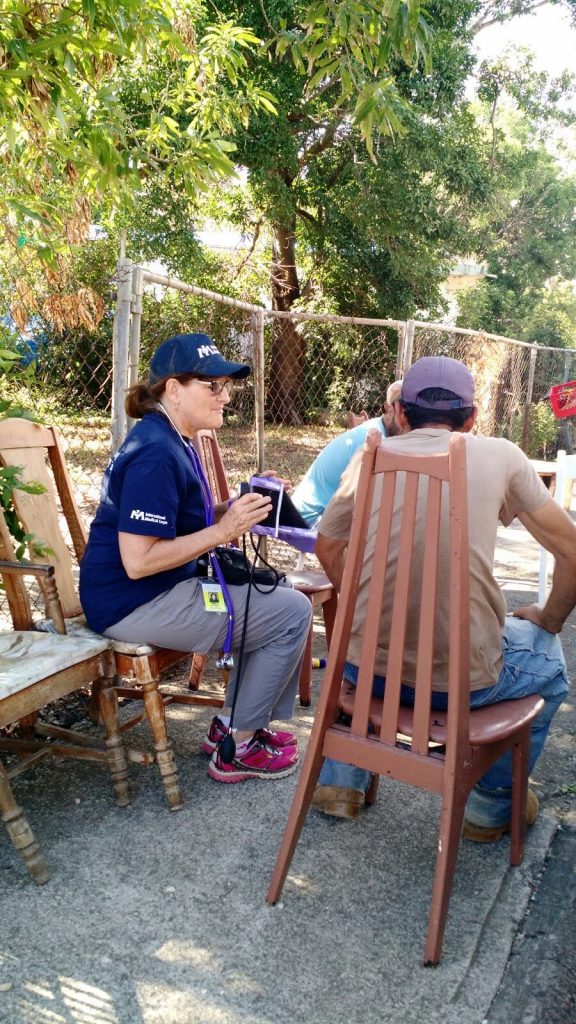
According to Nancy, depression is one of the biggest issues facing Puerto Ricans today, several months after the hurricanes. People lost everything: homes, loved ones, livelihoods—even the beautiful, lush trees. Says Nancy, “There’s a profound sadness over a way of life that’s not thriving.” Yet, she notes, the people of Puerto Rico remain incredibly resilient. “In spite of the sadness,” she says, “families and neighbors helped one another, facing the challenge of living without electricity and clean water with courage, finding creative solutions, and sustaining one another.”
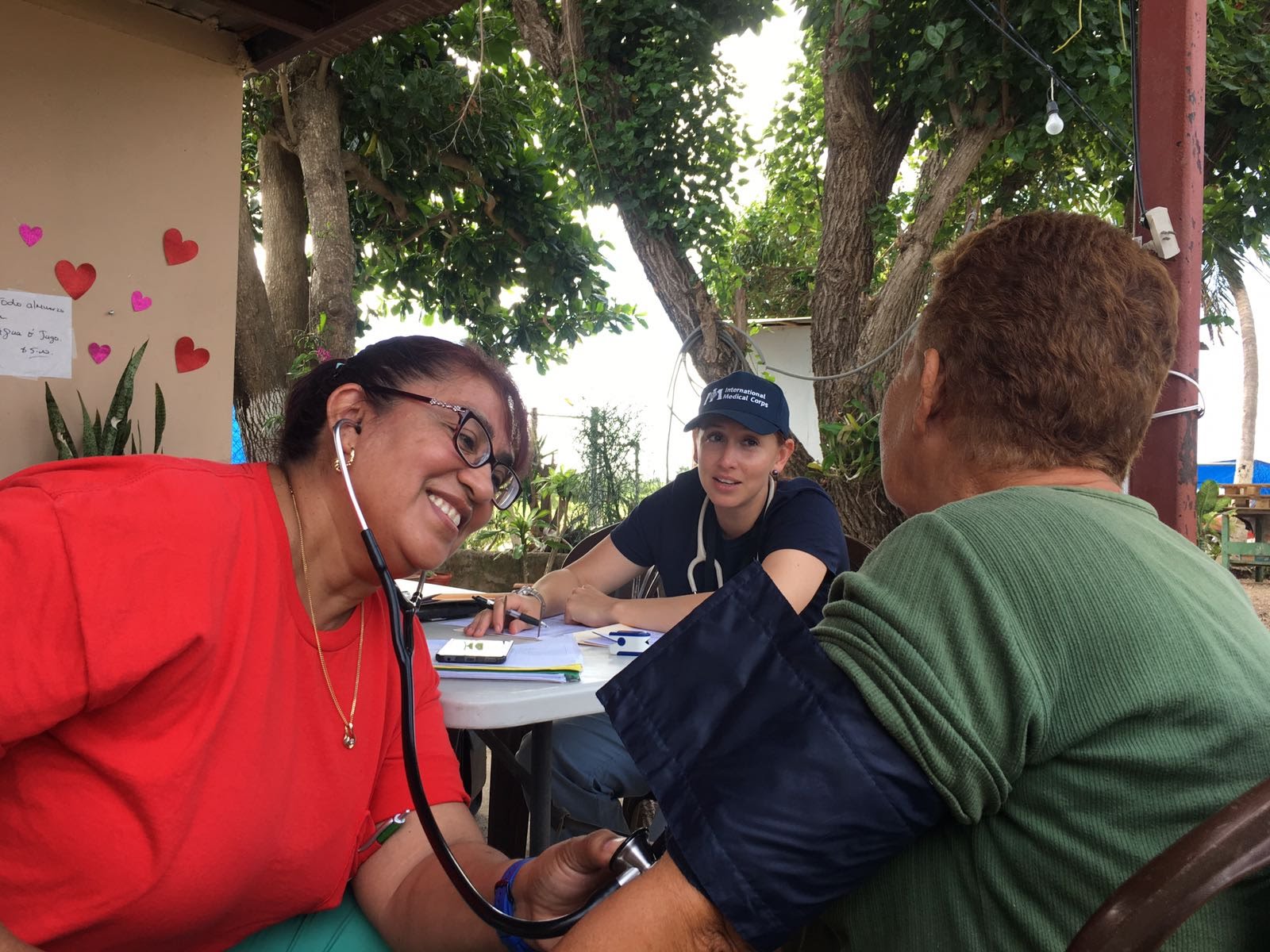
Nancy calls nursing a “whole person approach” and says that nurses work really well in collaborative, interdisciplinary teams. Here, a local nurse Maria treats a patient at her home. Says Nancy: “Nurses look at how patients adjust their lives to the conditions that they face. They look at social determinants of health. Nurses tend to have very strong relationship skills. It’s so important for people in crisis to feel comfortable sharing their concerns.”
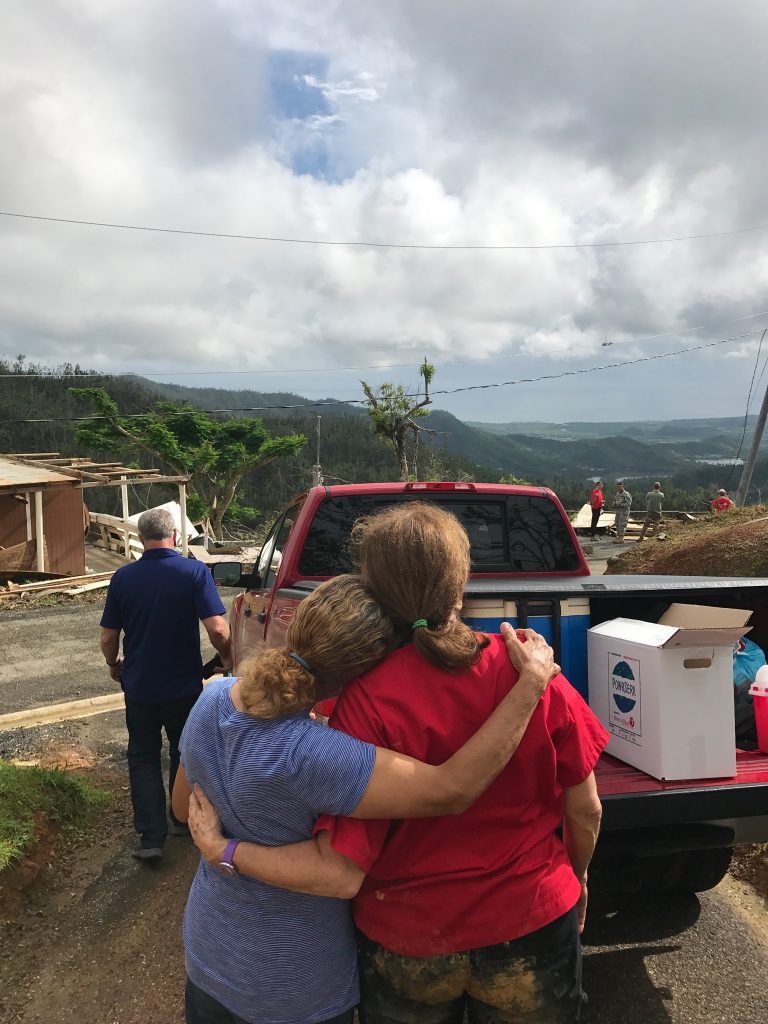
This year’s International Nurses Day theme is “Health is a human right.” Nancy, pictured here with one of her patients in Puerto Rico, says she absolutely believes in this statement. Says Nancy, “After the storm took away so much, this woman was so grateful for the human help – that humanity trumps disaster.”
